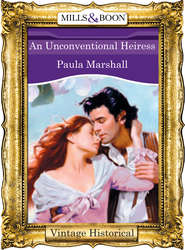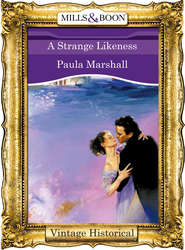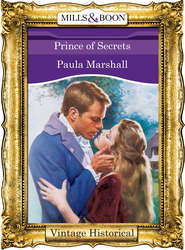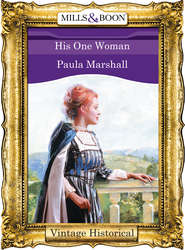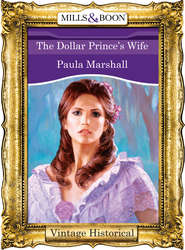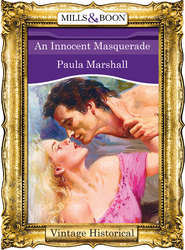По всем вопросам обращайтесь на: info@litportal.ru
(©) 2003-2024.
✖
An Unconventional Duenna
Настройки чтения
Размер шрифта
Высота строк
Поля
“The workrooms are at the back,” said Lady Dunlop reverently. She was another large woman, like Mrs Tenison and possessed, if possible, even more address. She was the widow of a one-time Lord Mayor of London and was consequently immensely rich. “You will understand that French is Madame’s first language but she speaks tolerable English. Ah, here she comes.”
Madame was as elegant as one might have expected. Her day gown was pale blue in colour, high-waisted and classically cut. Its small ruffled linen collar was tied with a simple bow. Emma, who had been a little worried that she might be expected to wear something outré, was relieved to see that Madame’s toilette was of the plainest. Indeed, she would have worn it with pleasure herself. For her part, Athene could only wish that Madame was going to design clothes for her.
It was only when she drew near, greeting them all with a bow when they rose to meet her, that Athene had the oddest sensation that she had met Madame before. This was of course, a nonsense, since Lady Dunlop had told them that Madame had come from Paris via the Low Countries some time during the last two years, but had only recently set up in Bond Street.
“Pray be seated,” she told them in prettily accented English, before seating herself in a high-backed chair after Lady Dunlop had carried out the necessary introductions. “I understand that it is Miss Tenison I am to dress. It will be both a challenge and a pleasure, since I must retain her charming innocence and yet create something which will be sure to attract attention. A difficult feat, that, but I am sure that it can be managed.”
Her eyes roved over Athene when she added, “I am not required to dress Miss Filmer also?”
Mrs Tenison, having beamed at Madame’s description of Emma, now bridled a little at the mention of Athene.
“By no means. I fear that Miss Filmer cannot afford the fees you will be charging.”
“A pity,” said Madame sweetly. “No matter, we will concentrate on Miss Tenison’s requirements.”
She proceeded to do so. A bevy of young women were summoned and came in carrying pattern books, bolts of silk, satin and gauze, lengths of ribbon and made-up silk posies of a kind which she said that she would create for Emma. A small sketchbook and pencil was handed to Madame, who began to draw very rapidly a series of elegant garments for Emma. She showed the sketches to Emma and asked her opinion of the style and the colours which she had chosen.
Mrs Tenison, always dominant, objected to this as firmly as politeness would allow, saying, “I would prefer, if you please, to select my daughter’s coming-out gowns myself. I am not sure that she is necessarily the best judge of what will suit her.”
Emma, who had been enjoying herself immensely, and had once or twice called on Athene to help her, hung her head a little at this and looked frantically first at Madame and then at Athene, who was the amused spectator of Madame’s manipulations and who had also just remembered where she had seen the modiste before.
From the moment that Madame had begun to draw, Athene had recognised her. She knew at once where it was that she had last seen that intent and highly concentrated expression and who had worn it.
Yet, could it be possible? Could it be that Madame Félice, so fine, so polished, who had recently arrived in London from Paris via the Low Countries, was in reality harum-scarum, fly-away, country-bred, ill-dressed Louise Hanslope with whom she had played as a child? Louise, the daughter of a mysterious never-seen French émigré, who had been adopted by the Hanslopes in place of the child it seemed that they could never have.
Later she had been sent away to Northampton to be apprenticed to a dressmaker, and she and Athene had corresponded with one another even though Louise was some years older than she was.
Now she knew that the lonely child which Louise had been had taken delight in befriending another lonely and unhappy little girl. Later when she had returned to become the Marchioness of Sywell their friendship had been renewed and the two of them had roamed the Abbey grounds enjoying its neglected, but wildly beautiful, scenery.
The last time she had seen Louise before she disappeared had been at the old Rune Stone, set in a stand of trees which was always known as the Sacred Grove. They had been painting it from different angles and she had looked up to see that Louise was lost in the world which she was creating on paper. Athene’s own efforts, although creditable, showed nothing of the great talent for colour and design which Louise’s possessed and which she was now turning to good account in her profitable business.
Perhaps she was mistaken. Athene thought not. She was sure that she, and she alone, had discovered that the missing Marchioness was not dead, not starving in a garret, but was a rich and successful modiste serving the wives of the great ones of the world of society!
And now little Louise Hanslope was saying smoothly to Mrs Tenison, “You may offer me your opinion, madame, but I must remind you that it is Miss Emma who will wear my clothes and she will not be happy in them if they are not to her taste.”
“But they are so extremely simple,” protested Mrs Tenison.
“It is charming innocence that I am dressing, remember?” countered Madame Félice. “If you are not happy with what I am proposing then I suggest that you go elsewhere,” and she began to close her drawing-book.
Lady Dunlop shook her elegantly coiffed head at Mrs Tenison, who said hastily, “Oh, no, madame, I am in your hands. Do as you think fit.”
Athene could scarce repress a laugh at this abject surrender by the tyrant. She gave a little cough, while Emma, released for the first time from the bondage of her dominant mama, said eagerly, “Oh, Madame Félice, I have the most splendid notion. Would it be possible for all my gowns, however they are cut and in whatever material, to be white in colour? I think that it would suit me, particularly if you make me some sprays of lily-of-the-valley, white crocuses and small freesias to wear with them. I have always wanted to wear white.”
It was the first occasion on which Emma had ever asserted herself, and Athene could not fault her taste, so far removed from the dull and often garish toilettes which had been her mother’s choice.
“But…” began Mrs Tenison, only to meet Madame’s stern eye, and mutter, “Oh, very well.”
After that, all went swimmingly. Madame and Emma, between them, finished with a splendidly simple wardrobe. Athene, still amused, managed to catch Madame’s eye when she was inspecting a length of white silk which one of her minions was holding against Emma. Since she was out of Mrs Tenison and Lady Dunlop’s line of sight she indulged herself in a daring wink, which had been one of her and Louise’s jokes in the old days. Madame did not wink, but gave her a slow and meaningful smile.
Oh, yes, she had not been wrong! She had found her old friend, strangely changed. Now all that was left was to renew their friendship, although how she was to do so in front of the two harpies, as Athene naughtily thought of them, might be difficult.
She had not allowed for Madame Félice’s resourcefulness. Before their session was over, that lady, on some pretext, retired to the workrooms at the back of the shop, returning a little later with some small sprays of white silk flowers, already made up as specimens of what she could do, and a pile of paper. After a short interval she handed Athene the paper to hold, having first made sure that none of her minions was near her.
“You will oblige me, I am sure,” she said to the poor companion who had stood, unheeded, throughout the lengthy morning. “They are some sketches I have made which might it amuse you to look through while we conclude our business.”
Her French accent was stronger than ever when she came out with this. Athene duly obliged her by taking the papers and looking through them.
The first one was, as Madame had said, a drawing of a walking dress which would have suited Athene down to the ground, as the saying had it. Beneath it Madame had written, “You would look well in this.”
The second paper had no sketch drawn on it. Instead a short note in Madame’s fine hand said, “I see that my old friend is not deceived. Is it possible that our friendship could be renewed? Surely the slave has some time of her own and could visit one who is a slave no longer?”
The note was unsigned, but its message was plain. Madame Félice, or rather, Louise, the Marchioness of Sywell, wished to meet her, away from her charge and the harpies.
Unobserved, Athene spent the remainder of the visit looking through the rest of the papers, which were all drawings of the most elegant gowns, coats, bonnets, gloves, and even parasols. Occasionally, she showed one to Lady Dunlop to admire. Mrs Tenison was too busy agonisedly watching Emma being fitted out in what she privately considered to be the most unsuitable clothing to be able to take note of anything else.
Eventually everyone but Mrs Tenison was satisfied and prepared to leave. Athene handed the papers back to Madame Félice, saying, “My thanks, Madame. They were most instructive and I shall be sure to follow your advice.”
Madame smiled sweetly and said, “I am delighted that I was able to offer you assistance. It has been a pleasure to dress Miss Emma—I think that she is someone who will improve when her confidence grows. I trust, Miss Filmer, that you will be of equal assistance to her.”
Athene nodded, guiltily realising that in her efforts to attract Lord Kinloch, far from helping Emma, she was taking his attention away from her! On the other hand, there would be many young men who would be only too happy to court Emma—or “make a leg at her,” as the current fashionable slang had it, so she was not really depriving her of anything serious.
Nevertheless, what her old friend had said had made her feel uncomfortable, and she tried to console herself with the thought that if she did not look after herself, no one else would.
She took that thought with her into the drawing-room that afternoon when Lord Kinloch—with his attendant cousin—paid his promised visit to them. She had already decided that during her one afternoon off she would visit Bond Street and renew her friendship with Louise—or rather Madame Félice as she must now think of her.
She wondered crossly whether Lord Kinloch ever went anywhere without his interfering shadow: she was unhappily aware of Nick’s sardonic eye on her, even though she sat, all prim and proper, a little away from the main company. She was not wearing her cap, for after some strong—and private—words between Mrs Tenison and her husband, she had been informed after nuncheon that she was to leave it off in future.
Adrian was on his high ropes at the prospect of seeing Athene again, although for form’s sake he had to address most of his conversation to the Tenisons.
“I have the most interesting news for you,” he announced jovially. “I have decided that now that I have acquired a curricle I shall waste no time in racing it to Brighton. I intend to make it known that I am ready to accept any wager from anyone.”
“A reasonable wager, I trust,” said Nick sardonically.
“Of course,” said Adrian grandly—although no such proviso had entered his head. “I am not so green as to waste my fortune on it.”
Nick refrained from pointing out that his cousin had had little or no practice in driving his new toy, and to race it before he was fully ready to do so might be unwise, if not to say dangerous.
It was left to Mr Tenison to say reflectively, “I believe that curricle racing is not without danger, Lord Kinloch. Only the other week two reckless young men were racing at full speed towards Brighton and found themselves side by side on the road in the way of a large cart being driven by a farm labourer. All three vehicles ended up in the ditch. One of the young men broke his arm and the other his leg.”
Athene could not resist asking, “What happened to the poor labourer?”
“History does not relate,” said Nick. “It dealt only with two feckless idiots, and had little to say on the matter of the one poor soul trying to earn a living and who had been deprived of the ability to do so.”
“I think,” said Adrian, “that you may safely rely on me not to do anything foolish.”
Nick, knowing Adrian’s cheerful, if not to say feckless, optimism, doubted that very much. But he did not wish to give his cousin a put-down before the Tenisons.
Emma, however, remarked anxiously, “It sounds very dangerous to me. I beg of you to take care, Lord Kinloch, if you engage in anything so adventurous.”






